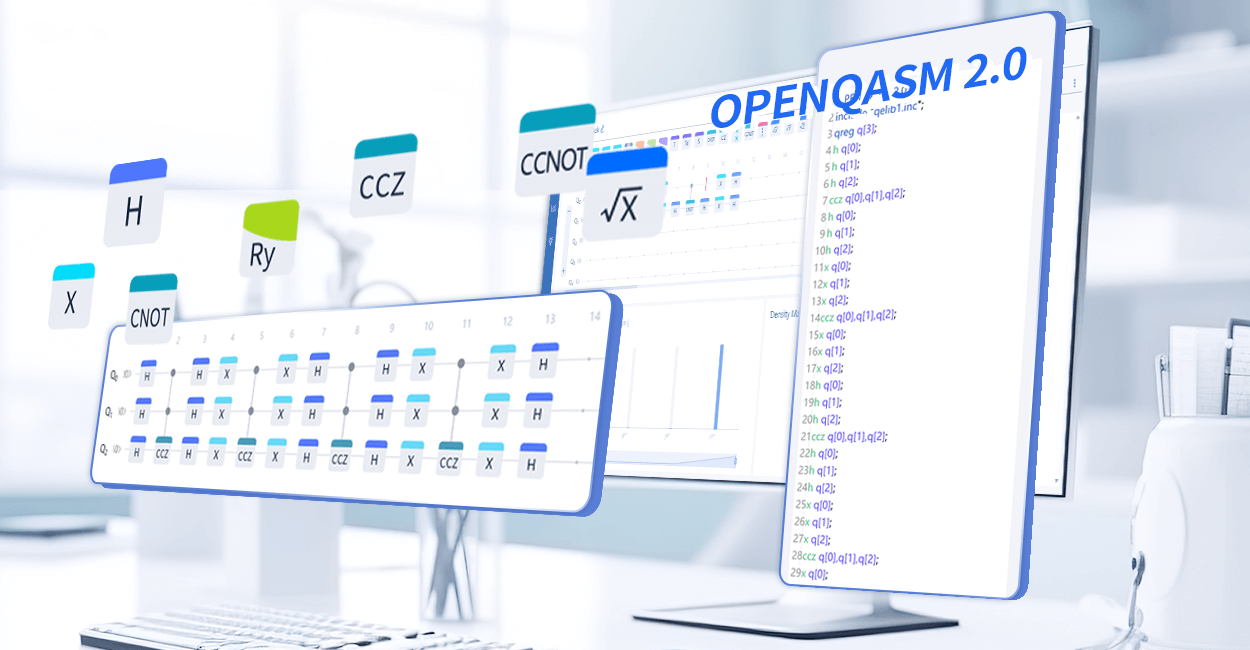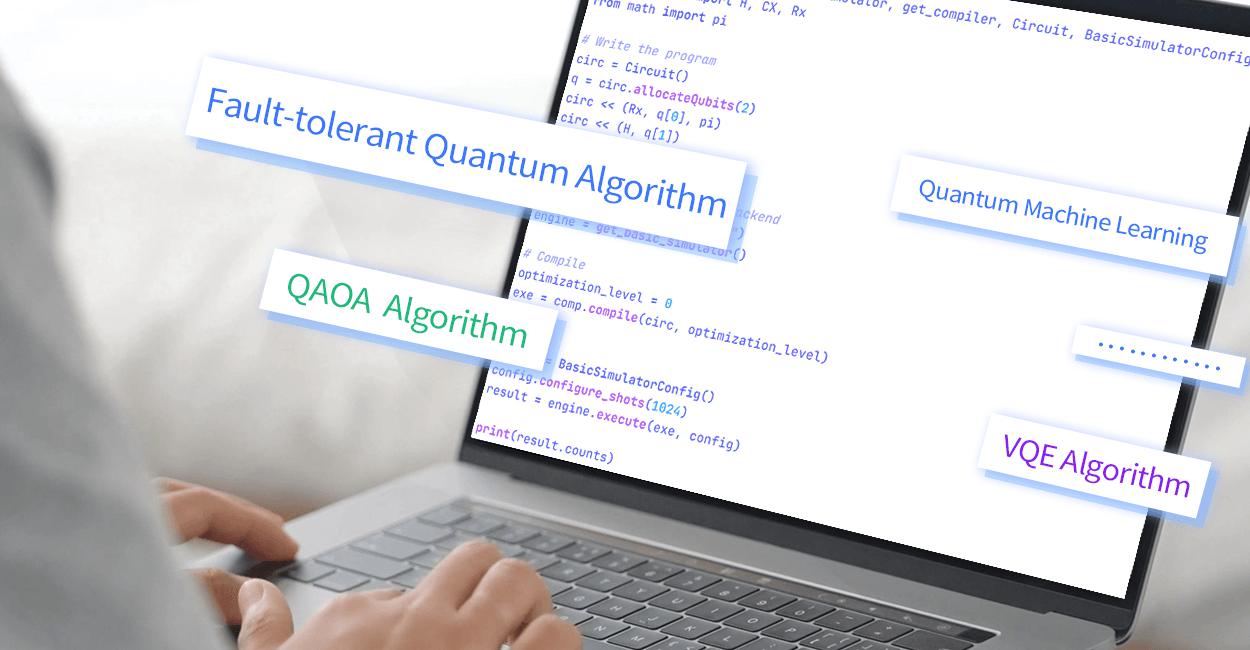10 Things You Can Do with an Online Quantum Computer
2025.05.28 · Blog online quantum computeruse quantum computer online
Accessing an online quantum computer gives you the ability to interact with real quantum hardware or simulators — directly from your web browser or coding environment. Here's what users from different backgrounds can actually do with online quantum computers:

#1 Build Quantum Circuits
Design quantum circuits using drag-and-drop interfaces (like IBM's Circuit Composer) or code-based frameworks such as:
-
Qiskit (IBM Python)
-
Cirq (Google)
-
SpinQ API
-
Amazon Braket SDK
You can arrange quantum gates like Hadamard, CNOT, Pauli-X/Y/Z, T-gate, and Toffoli to construct logic for quantum algorithms.

#2 Run Quantum Algorithms
You can execute foundational and advanced quantum algorithms, including:
-
Deutsch–Jozsa Algorithm: Determine if a function is constant or balanced using one query.
-
Grover's Search Algorithm: Perform unsorted database search quadratically faster than classical methods.
-
Shor's Algorithm (on simulator): Factorize large integers for cryptography applications.
-
Quantum Fourier Transform: Fundamental for many quantum applications.
-
VQE (Variational Quantum Eigensolver): Find the ground state energy of molecules — useful in quantum chemistry.
-
QAOA (Quantum Approximate Optimization Algorithm): Solve combinatorial optimization problems, used in logistics and finance.

#3 Analyze Quantum Behavior
Gain insight into quantum phenomena by visualizing:
-
State vectors & wavefunctions
-
Bloch spheres (for single-qubit states)
-
Probability distributions of measurement outcomes
These tools help students and researchers see the “invisible” inner workings of quantum computation.
#4 Study Noise and Error
Real quantum computers are imperfect. Online platforms allow you to:
-
Compare ideal (noiseless) simulation vs real hardware results
-
Explore how decoherence, gate fidelity, and readout errors affect results
-
Simulate quantum error correction techniques in noisy environments
Great for NISQ-era (Noisy Intermediate-Scale Quantum) experimentation.
#5 Benchmark Across Hardware
Many platforms let you choose between different quantum devices:
-
IBM's superconducting qubit systems (5-127 qubits)
-
IonQ's trapped-ion computers
-
OQC's photonic quantum processor
Benchmarking allows developers to test algorithm performance across architectures.
#6 Integrate with Classical Code
Quantum cloud SDKs support hybrid classical-quantum workflows, where classical CPUs:
-
Preprocess data
-
Post-process results
-
Optimize quantum circuits (e.g., using gradient descent in VQE)
You can run these workflows inside Jupyter Notebooks, Python scripts, or cloud-integrated environments.
#7 Learn and Teach Quantum Computing
Whether you're self-taught or in a university course, online quantum platforms provide:
-
Tutorials & documentation
-
Hands-on labs
-
MOOCs (massive open online courses) from MIT, Harvard, and others
-
Pre-built assignments and simulations
SpinQ, for example, offers cloud-connected educational quantum systems, ideal for classrooms.
Also Read:
Quantum Education and Quantum Courses: Useful Tools & Strategies
Learn Quantum Computing: 4 Proven Ways for Beginners
#8 Participate in Quantum Research and Collaboration
Online platforms often support:
-
Open research communities (e.g., IBM Qiskit community)
-
Hackathons and coding challenges
-
Collaboration via GitHub, notebooks, and cloud sharing
Some users even publish papers after running experiments on cloud-connected quantum hardware.
#9 Run Repetitions for Statistical Accuracy
Quantum computers work probabilistically. You'll often:
-
Run a circuit 1,000 times or more to get statistically meaningful output.
-
Collect histograms of measurement results.
-
Use post-processing scripts to interpret raw quantum data.
This mimics how real labs process quantum experiments.
#10 Prototype Quantum Software
If you're developing a quantum machine learning model, quantum compiler, or hybrid application, online quantum computers serve as your testbed.
You can:
-
Build apps that combine TensorFlow or PyTorch with quantum layers
-
Test new circuit optimizations
-
Validate your compiler across different backends (e.g., IBM vs SpinQ)
Final Thought
Whether you're building logic gates or discovering new physics, online quantum computers make quantum computing accessible, scalable, and real. They open up a world where you don't just learn about quantum computing—you actually do it.
Featured Content






